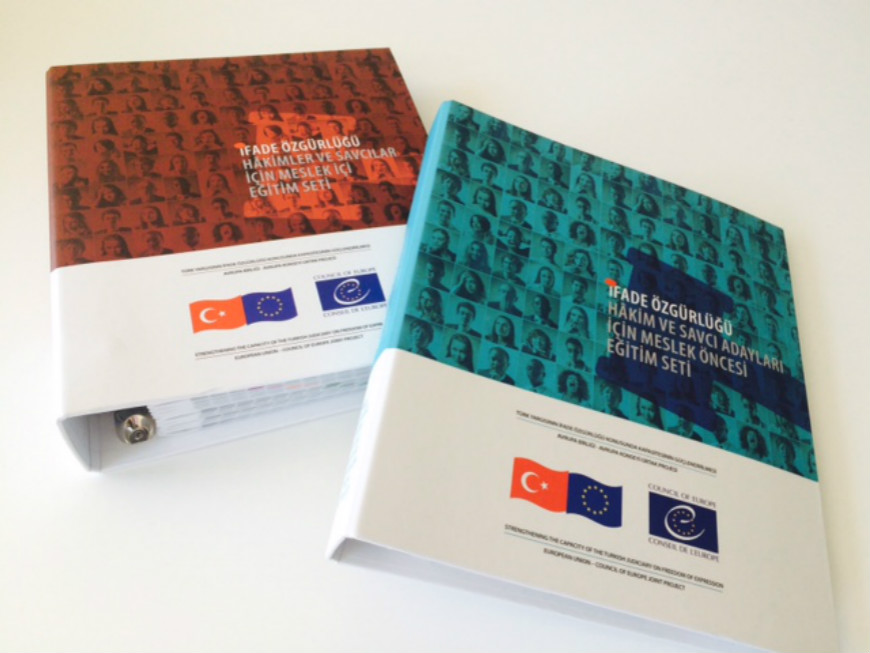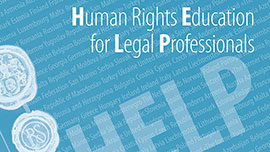The Council of Europe, under its joint Project with the EU “Strengthening the Capacity of Turkish Judiciary on Freedom of Expression” (link: https://www.coe.int/en/web/national-implementation/projects-by-geographical-area/turkey-foe), has produced user-friendly tool kits for the pre- and in-service training programmes implemented by the Justice Academy of Turkey.
The training tool kits have been designed through intensive consultations with Turkish judicial bodies and other stake-holders, supported by legal and education experts. These new publications consist of various materials supporting trainers in delivering seminars tailored for specific target groups, such as judges and prosecutor dealing with criminal or civil defamation, terror crimes, press-related offences and administrative law disputes. They include the following documents:
Training Methodology Handbook: It provides practical information for trainers on the adult education techniques and approaches to be used in these pre- and in-service training seminars. This methodology is based on the promotion of critical thinking and mentality change through interactive discussions. The hand book introduces a wide range of interactive techniques, including but not limited, station techniques, opinion poll exercise and brainstorming.
Which methodology is used?
- Peer-to-peer training, instead of training by a lecturer
- Interactive two-way communication, instead of monologues
- Facilitated by two co-trainers, instead of only one
- Promotion of critical thinking in a safe environment, instead of imposing one side of the story
- Problem-based, instead of subject-based
- Learner-oriented, instead of trainer-oriented
- Practical, instead of theoretical
Module Instructions for Trainers: This tool guides trainers step by step on how to implement the training methodology employed in those seminars in order to most efficiently transfer the necessary knowledge and skills to the participants. It also contains basic information on the international normative framework and domestic legislation as well as the jurisprudence of the European Court of Human Rights and Turkish high courts on specific issues concerning freedom of expression. Links to online resources, including short videos are provided in this material (http://ifadeozgurlugu.taa.gov.tr/en/videos/ ).
Hand-outs: They include factsheets, extracts from the judgements of the European Court of Human Rights or Turkish high Court, case studies and practical exercises to be circulated to the participants.
Power Point Slides: These documents help trainers whenever needed demonstrate to the participants the most crucial aspects of some sessions to be discussed. As a matter of methodology, trainers have been discouraged from such presentations as much as possible.
Resource Guide: It consists of a comprehensive reading list, online resources and normative reference points concerning the training of judiciary on human rights.
Under the Project, 75 trainers trained to use these tool kits in pre- and in-service training seminars where approximately 3000 judges and prosecutors (including the candidates) attended.





